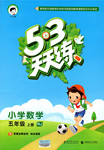题目内容
The simplest way to say it is this: I believe in my mother. My belief began when I was just a kid, who 36 becoming a doctor.
My mother was a domestic(佣人). Through her work, she observed that 37 people spent a lot more time reading than they 38 watching television. She announces that my brother and I 39 watch two to three pre-selected programs during the week. With our 40 time, we had to read two books each from the Detroit Public Library and 41 written book reports to her. She would mark them up with check marks and highlights. Years later we realized her marks were a 42 . My mother was illiterate(文盲).
When I entered high school, I was a 43 student, but not for long. I began to like fancy clothes. I wanted to 44 other guys. I went from an A-student to a B-student to a C-student. One night my mother came home from her various jobs and I 45 about not having enough Italian knit shirts. She said, “Okay, I’ll give you all the money I 46 this week scrubbing floors and cleaning bathrooms, and you can buy the family food and pay the bills. With the money 47 , you can have all the Italian knit shirts you want.” I was very 48 with that arrangement but once I got through allocating(分配)money, there was 49 left. I realized my mother was a financial genius(金融天才)to be able to keep the roof over our heads and any kind of food on the table, let alone buy 50 . I really realized my desire wasn’t going to get me 51 . Success requires intellectual preparation. I went back to my 52 and became an A-student again and eventually I 53 my dream and I became a doctor.
My story is really my mother’s story—a woman with 54 formal education who used her position as a parent to change the lives of her children. There is no job 55 than parenting. This I believe.
| 【小题1】 |
|
| 【小题2】 |
|
| 【小题3】 |
|
| 【小题4】 |
|
| 【小题5】 |
|
| 【小题6】 |
|
| 【小题7】 |
|
| 【小题8】 |
|
| 【小题9】 |
|
| 【小题10】 |
|
| 【小题11】 |
|
| 【小题13】 |
|
| 【小题14】 |
|
| 【小题15】 |
|
| 【小题16】 |
|
| 【小题17】 |
|
| 【小题18】 |
|
| 【小题19】 |
|
| 【小题20】 |
|
【小题1】C
【小题2】C
【小题3】D
【小题4】A
【小题5】B
【小题6】B
【小题7】D
【小题8】A
【小题9】B
【小题10】A
【小题11】D
【小题12】A
【小题13】B
【小题14】D
【小题15】A
【小题16】C
【小题17】C
【小题18】B
【小题19】A
【小题20】C
解析试题分析:这是一篇记叙文。作者出生于一个贫穷的单亲家庭,然而在母亲的帮助与教导下,他克服了重重困难,从后进生一跃名列前茅,成为优秀生,并实现了自己的梦想,成为了一名医生。这一成功的事例说明:在教育子女上,父母才是最好的老师。
【小题1】考查词组:A. thought of想到B. got used to习惯C. dreamed of梦想D. got tired of厌倦于,句意:信念是梦想成为一名医生。C
【小题2】考查形容词:据母亲观察,成功(successful)人士花在阅读上的时间要比在看电视上多得多。 C
【小题3】考查代替:此处使用did 代替前文的spent, 避免重复。选D
【小题4】由announced 得知,我和弟弟每周只能看三到四个预先挑选好的电视节目。选A
【小题5】考查形容词:free time空闲时间。选B
【小题6】由上下文可知,母亲非常严厉。我们每人必须阅读从底特律公共图书馆借来的两本书,还要上交读书心得。present sth. to sb.把某物呈交给某人。 选B
【小题7】由My mother was illiterate.得知,此处是一个计谋。选D
【小题8】由but 推测出:读中学时,我曾是个优等生(top),但好景不长。选A
【小题9】考查词组:A. get rid of去除B. hang out with和…闲逛C. break away from脱离D. keep in touch with和…保持联系,图漂亮衣服,想和别人出去闲荡。hang out 闲荡。选B
【小题10】考查动词:complain about抱怨。作者抱怨没有漂亮的意大利针织衫,选A
【小题11】考查动词:make修饰the money挣的钱。选D
【小题12】此处是―with + 宾语+ 宾补结构。money 与leave over(剩下)之间是被动关系。剩下的钱你都拿去买意大利针织衫吧。 选A
【小题13】考查形容词:A. tired疲劳的,B. pleased高兴的,C. disappointed失望的,D. bored厌烦的,句意是作者对妈妈的安排很满意。选B
【小题14】由but 可知并非如我所愿。但当我把该花的钱都分配完毕,手里已分文不剩(nothing)。选D
【小题15】我的母亲不愧是个理财能手,她能让我们有地方住、有各样的食物吃,更不用说买衣服了(clothes)。选A
【小题16】通过这件事,我还意识到,一时的满足并不会给我带来什么成就(get anywhere)。选C
【小题17】而成功需要智力上的准备。于是我又发奋努力学习(studies)。选C
【小题18】考查动词:realise one’s dream实现某人的梦想。选B
【小题19】由上文可知,我母亲,她是这样一个女人,没有可接受过什么教育(little)、家境贫寒,却利用家长的身份改变了世上很多人的生活。A
【小题20】由上文得知:没有那件事比对子女的养育更重要了,选 C
考点:考查夹叙夹议类短文
点评:这题设空合理,考生不难从中领会大意,从而下手会比较顺利,从选项中可以看出,本大题主要还是考查了词汇的辨析与运用,但更加注重综合语言能力的运用,需要根据故事情节,了解词汇用法的同时,结合语境,做出准确的判断。

 53天天练系列答案
53天天练系列答案There were smiling children all the way. Clearly they knew at what time the train passed their homes and they made it their business to stand along the railway, wave to complete strangers and cheer them up as they rushed towards Penage. Often whole families stood outside their homes and waved and smiled as if those on the trains were their favorite relatives. This is the simple village people of Malaysia. I was moved.
I had always traveled to Malaysia by plane or car, so this was the first time I was on a train. I did not particularly relish the long train journey and had brought along a dozen magazines to read and reread. I looked about the train. There was not one familiar face. I sighed and sat down to read my Economics.
It was not long before the train was across the Causeway and in Malaysia. Johore Baru was just another city like Singapore, so I was tired of looking at the crowds of people as they hurried past. As we went beyond the city, I watched the straight rows of rubber trees and miles and miles of green. Then the first village came into sight, immediately I came alive; I decided to wave back..
From then on my journey became interesting. I threw my magazines into the waste basket and decided to join in Malaysian life. Then everything came alive. The mountains seemed to speak to me. Even the trees were smiling. I stared at everything as if I was looking at it for the first time.
The day passed fast and I even forgot to have my lunch until I felt hungry. I looked at my watch and was surprised that it was 3:00 pm. Soon the train pulled up at Butterworth. I looked at the people all around me. They all looked beautiful. When my uncle arrived with a smile, I threw my arms around him to give him a warm hug (拥抱). I had never done this before. He seemed surprised and then his weather-beaten face warmed up with a huge smile. We walked arm in arm to his car.
I looked forward to the return journey.
【小题1】The author expected the train trip to be_________.
| A.adventurous | B.dull | C.exciting | D.pleasant |
| A.The mountains along the way. |
| B.The friendly country people. |
| C.The crowds of people in the streets. |
| D.The simple lunch served on the train. |
| A.choose | B.enjoy | C.prepare for | D.carry on |
| A.Butterworth. | B.The Causeway. | C.Johore Baru. | D.Singapore. |
| A.Comfort in traveling by train. |
| B.Pleasure of living in the country. |
| C.Reading gives people delight. |
| D.Smiles brighten people up. |
Pets provide an unconditional love that requires very little on the part of the human.
Animals are so special to those of us who love them. We miss them when they are no longer with us. We grieve (哀悼) for them in ways which are just the same as grieving for a human loved one.
Whether the end comes through old age, illness, or sudden death, the death of a pet can cause enormous feelings of sorrow, guilt, and loneliness for children and adults alike, as the animal was considered a family member, a child’s favoured playmate, or an older person’s loyal and faithful companion.
Some people don’t want a pet because they do die! It’s understandable to be unwilling to expose yourself to death but, at the same time, we become immeasurably more human because our animals die. When we live with animals we’re more in step with the rhythms of the planet from day to night and from season to season because our companions make us more aware of the changes around us. Our companion animals teach us about the simple gifts of a beautiful day, a good meal and a gentle touch.
The death of a pet can make us struggle with our belief structure-a natural part of the grieving period. Whether grieving an animal or human, we question our beliefs and many people find their belief structure becomes stronger when they ask themselves hard questions. Others find a new way of acceptance.
And we learn from our animals. Animals aren’t afraid to die; they show us that the end of life can be faced without fear. They can teach us to accept death as an opening for love and wonder.
Allow yourself to grieve in whatever way is appropriate for you. The loss of a pet is real grief and causes us to travel through the stages of grief-denial, anger, depression, guilt, and acceptance. These stages must be lived through for the mourning to allow full healing.
【小题1】 According to the passage, the reason why some people don’t want a pet may be that .
| A.animals may change our belief structure |
| B.animals are so special for those who love them |
| C.pets can never escape from death which makes people sad |
| D.pets only provide people with love but never ask for return |
| A.the animals’ death is unacceptable for their owners |
| B.the animals’ death may arouse their true feelings inside |
| C.the animals’ death may expose people to the changes in life |
| D.the animals’ death is more understandable than human’s death |
| A.pets can give us some gifts when they have a good meal |
| B.pets are so selfless and brave that all the people love them |
| C.people can never accept the death of pets or the one they love |
| D.people may go through several stages before they can accept the death of a pet |
| A.Neutral. | B.Negative. | C.Positive. | D.Critical. |
